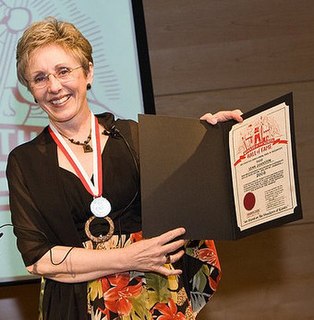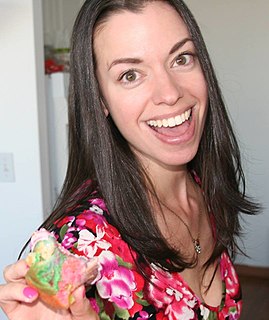A Quote by Samuel Johnson
The happiest part of a man's life is what he passes lying awake in bed in the morning.
Related Quotes
If Montaigne is a man in the prime of life sitting in his study on a warm morning and putting down the sum of his experience in his rich, sinewy prose, then Pascal is that same man lying awake in the small hours of the night when death seems very close and every thought is heightened by the apprehension that it may be his last.
I was driven to Whipsnade one sunny morning. When we set out I did not believe that Jesus Christ is the son of God, and when we reached the zoo I did. Yet I had not exactly spent the journey in thought. Nor in great emotion. “Emotional” is perhaps the last word we can apply to some of the most important events. It was more like when a man, after a long sleep, still lying motionless in bed, becomes aware that he is now awake.
I wake up in the morning and I lie in bed, and it's the time I call "the theater of morning." All these thoughts run around in my head, between my ears when I'm waking up. It's not a dream state, but it's not completely awake either. So all these metaphors run around and then I pick one and I get out of bed and I do it. I'm very lucky.
You should not actually stay in bed for very long awake, because your brain is this remarkably associative device, and it quickly learns that the bed is about being awake. So you should go to another room - a room that's dim. Just read a book - no screens, no phones - and, only when you're sleepy, return to the bed.
I am strongly of the opinion that, after the age of twenty-one, a man ought not to be out of bed and awake at four in the morning. The hour breeds thought. At twenty-one, life being all future, it may be examined with impunity. But, at thirty, having become an uncomfortable mixture of future and past, it is a thing to be looked at only when the sun is high and the world full of warmth and optimism.
On a lazy Saturday morning when you're lying in bed, drifting in and out of sleep, there is a space where fantasy and reality become one. Are you awake, or are you dreaming? You see people and things; some are familiar; some are strange. You talk, you feel, but you move without walking; you fly without wings. Your mind and your body exist, but on separate planes. Time stands still. For me, this is the feeling I have when ideas come.
The millions are awake enough for physical labor; but only one in a million is awake enough for effective intellectual exertion, only one in a hundred million to a poetic or divine life. To be awake is to be alive. I have never yet met a man who was quite awake. How could I have looked him in the face? We must learn to reawaken and keep ourselves awake, not by mechanical aids, but by an infinite expectation of the dawn, which does not forsake us in our soundest sleep. I know of no more encouraging fact than the unquestionable ability of man to elevate his life by conscious endeavor.
Part of my function as a writer is to dream awake. And that usually happens. If I sit down to write in the morning, in the beginning of that writing session and the ending of that session, I'm aware that I'm writing. I'm aware of my surroundings. It's like shallow sleep on both ends, when you go to bed and when you wake up. But in the middle, the world is gone and I'm able to see better.
The morning, which is the most memorable season of the day, is the awakening hour. Then there is least somnolence in us; and for an hour, at least, some part of us awakes which slumbers all the rest of the day and night... All memorable events, I should say, transpire in morning time and in a morning atmosphere. The Vedas say, “All intelligences awake with the morning.



































